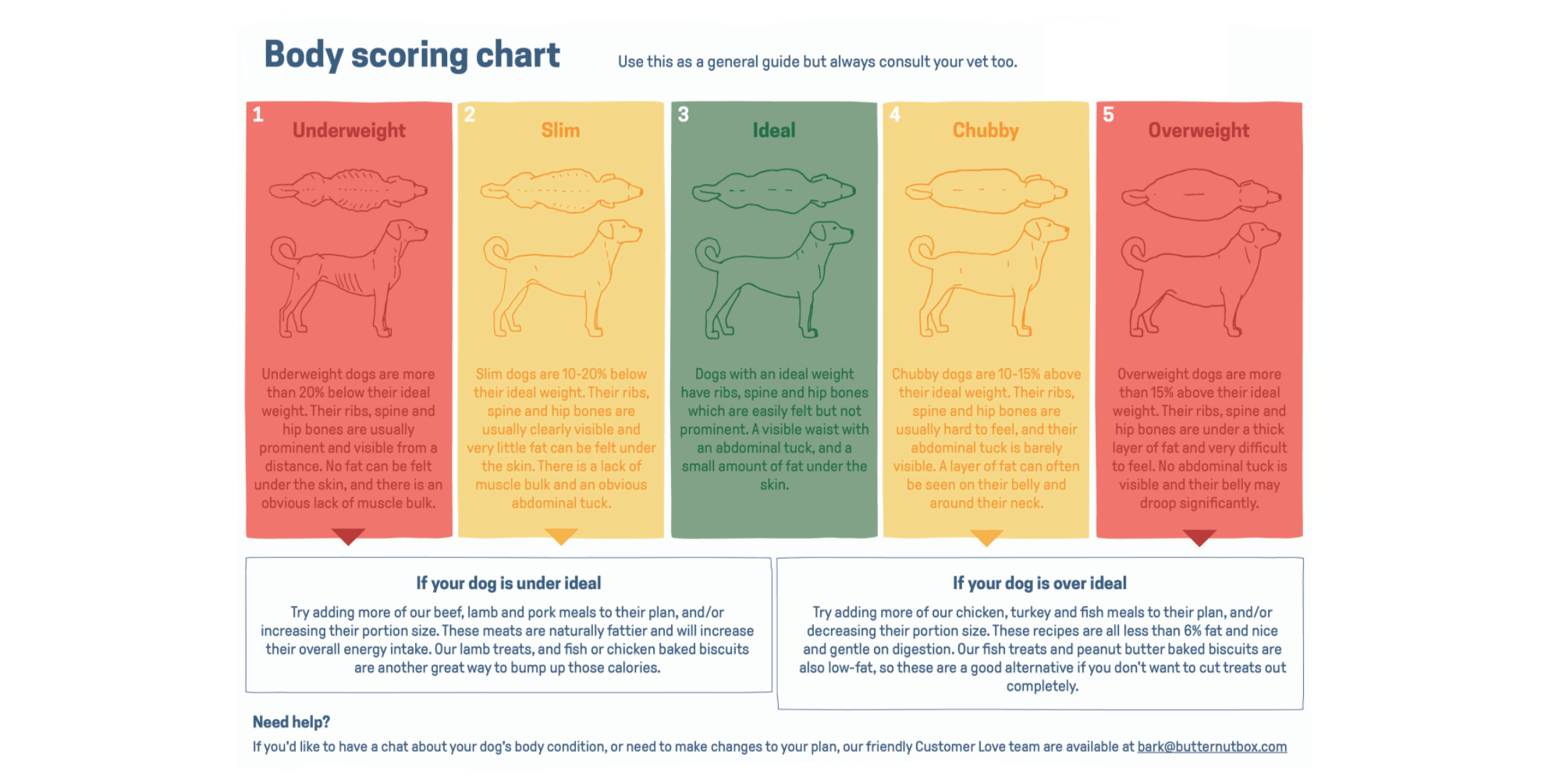Your puppy's nutritional needs and growth
- 08 Apr 2021
- 3m read

By Sarah Connell-Sait, our Vet Nurse at Butternut Box
Puppies have a lot of growing to do and it usually occurs within a fairly short space of time! It's not just physical growth (like their bones, muscles, organs, teeth, etc.), but mental growth too; your puppy will need to learn important socialisation skills and how to follow cues and commands. So, it's important your puppy is eating a complete and balanced, high quality, nutrient-rich diet from an early stage to support this growth period.
The good news is puppies can eat Butternut right from the start. Our meals are perfect for weaning onto. To make Butternut the right consistency for weaning, you can blend our meals with a little bit of warm water or puppy milk to make it into a liquidy gruel that can be lapped up (it's much tastier than it sounds). As the puppies get older, you can increase the amount of texture and just mash the Butternut and liquid with a fork rather than blending it. Gradually, you can reduce the amount of liquid until the puppies are eating just Butternut.
Different breeds of puppies will have different adult sizes and so they will grow and mature at different rates and have different nutritional needs. For example, large and giant breed dogs (such as Rhodesian Ridgebacks, Labrador Retrievers and Great Danes) can take up to 2 years to become fully grown and so need fewer calories per kilo to help maintain a long and slow growth period and reduce stress on their bones and joint; whereas small and medium-breed dogs (such as Cocker Spaniels and Shih Tzus) are usually at their adult body size by 12 months old, so they need many more calories per kilo to support a quick growth period.
These calories should come from a complete diet, rather than complementary food. The term complete means that the food contains all the nutrients your puppy needs in balanced proportions to meet your puppy's nutritional needs. Whereas, a complementary food (often wet or raw) doesn't contain the full range or the right balance of nutrients your puppy needs and so complementary food has to be fed alongside other foods like mixer biscuits or another complete diet.
Your puppy's needs will likely change again once they've been neutered. Often, a dog will need fewer calories after neutering as they don't use up quite as much energy as before. To avoid any unnecessary weight gain, it's important to keep an eye on your puppy's body condition as well as their weight. Once your puppy has reached their adult size, you should be able to feel their ribs and spine without having to dig in to find them. Their bones shouldn't be obviously protruding but have a layer of fat covering them. They should have a gentle tummy tuck after their ribs and a waist when you look at their body from above.

We take all of this into consideration with our in-depth portion size calculations so we'll make sure your puppy is receiving the perfect portion and you can be completely confident that your puppy is getting everything they need.
As your puppy grows, we'll ask you to keep us updated with their weight so that we can send enough food to support your puppy's energy needs. We can also regularly send our delicious treats and biscuits so you can get started on training.

.jpeg)
.webp)

